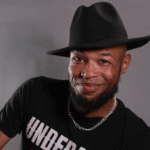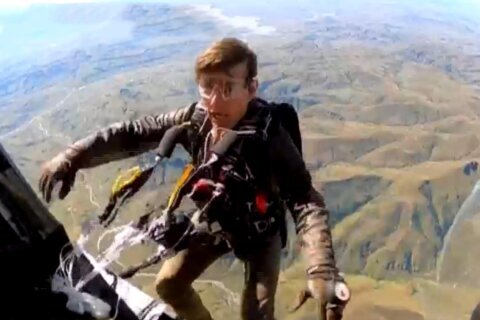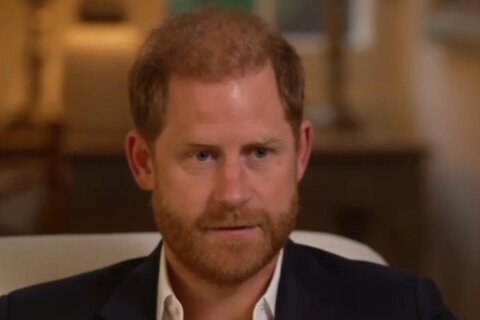I’ve gotten way out of the habit of sharing anything too deeply personal on the internet. But so many people — global leaders, U.S. presidents past and present, artists, fans and peers — have been posting amazing tributes, heartfelt stories, accolades and superlatives about the singular national treasure that was Tony Bennett.
I really felt like I needed to try push myself to share a bit more. Tony Bennett was such an extraordinary man, if anyone is worth it, he is.
When I met my beloved friend Antonia at Berklee College of Music in Boston, for some reason it never occurred to me that I’d ever meet her legendary father, let alone spend any real time around him. (Think about it: how often do you meet your friends’ parents?) For two people from sides of the tracks that couldn’t be more “opposite,” Antonia and I were instantly thick as thieves, and I never really thought much about her father, although I knew who he was.
The first time I met Tony (whom I call “Mr. B” as my way to strike a balance between informality and the appropriate level of respect) was at Antonia’s 21st birthday party at a restaurant-club called Il Panino in downtown Boston.
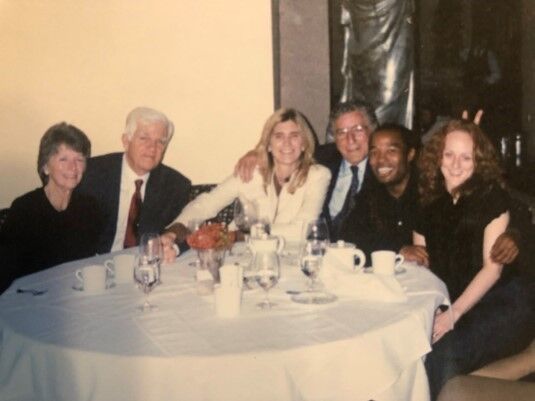
He sauntered in like the superstar he is, cheerfully greeting everyone as if we were all old friends of his — “How are ya?! Good to see ya!” He was warm, charming, approachable and fun; when you’re in his presence, it’s easy to forget just what an important cultural figure he is.
Because of my complicated biological family situation, I had gotten into the habit of spending Thanksgiving alone since I was 15 years old. One year in the early aughts, Antonia invited me to join her family for Thanksgiving at the Gotham Bar & Grill in the Village in New York City. I figured that must be fun (and I loved that it was at a restaurant where I could order what I wanted, considering my distaste for most of what is on the traditional Thanksgiving table). So I went.
I had no way of knowing that it would be the first of three different occasions I had Thanksgiving dinner with the Bennett family. I would get into the most animated discussions with Mr. B about music and the music business — it was always an amusing scene because while I had my opinions, he’d shut me down every time. (Who’s going to argue with Tony Bennett about music?) I still laugh at a couple of those conversations. But it wasn’t until after the third Thanksgiving that Mr. B.’s autobiography was published, and I realized just what a special spot I occupied.
When Mr. B was in the Army in 1945, he invited a Black fellow soldier and a friend, Frank Smith, to have dinner with him on Thanksgiving at the soldiers’ mess hall — at a time when soldiers were still officially segregated. In the eyes of a racist senior officer, this was a major transgression, and Mr. B said the officer punished him by cutting off his corporal stripes with a razor and then spitting on them before throwing them on the floor. Mr. B was also demoted to private, and reassigned to a unit that exhumed mass graves and prepared the bodies of soldiers to be shipped back home.
As he wrote, “This was another unbelievable example of the degree of prejudice that was so widespread in the Army during World War II. Black Americans have fought in all of America’s wars, yet they have seldom been given credit for their contribution, and segregation and discrimination in civilian life and in the armed forces has been a sad fact of life.”
And now, some 60 years later, after he suffered for sharing Thanksgiving with Frank Smith, here he was, again sharing his table with yours truly, a Black former group home kid, and treating me with nothing but kindness and respect. I’ve wondered if he thought of Frank Smith as he sat across the table from me. I certainly wish I knew the story as I was sitting there. But what else could I expect from the man who marched with Dr. King in Selma on Bloody Sunday? That was simply who Mr. B was.
The last time I saw Mr. B was in June of 2019, when he and Antonia were doing a date in Cedar Falls, Iowa — which was only about a three-hour drive from Minneapolis, where I was wrapping up some work of my own. I decided to stay and drive over to catch the show, hang out with Antonia and do our best to cut up and resuscitate our old “Thelma and Louise on the road” routine — as if we were in our 20s again.
It was so great to see him that night. Antonia opened the show, and I hung out in the wings (which is odd — normally I’d be in the house or the dressing room). Before long, Mr. B and Susan Crow Benedetto, his wife, came into the wings and Susan pulled up a chair for him to sit and watch Antonia’s set. There I was, standing over Mr. B’s shoulder, struck at how intently he was watching Antonia perform, and how much love was in his eyes.
It’s very dark in the wings, so there was no subtle way to attempt to take a pic without the flash going off, but in that moment, I just felt so privileged to be standing in such a special place and witnessing such a poignant moment. I had to try to commemorate it. So even though my iPhones are always out of date and don’t take the best pictures, I snapped the picture below. It transports me back to that moment every time I look at it.
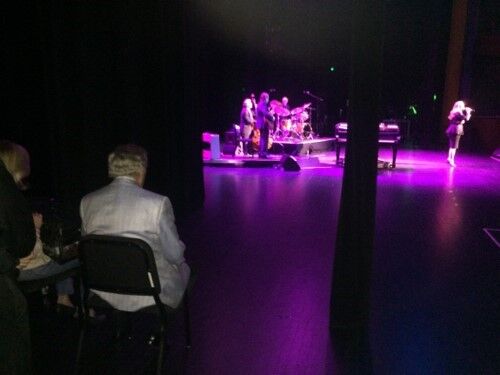
By this time, I understood that Mr. B was having some short-term memory issues (I didn’t yet know he had been diagnosed with Alzheimer’s) and that he just didn’t talk as much as I was used to. Backstage after the show, I just hung back and didn’t try to engage him too much because I didn’t want to confuse him or stress him out.
It turned out that this concert date coincided with the guitar player’s birthday, so the crew had cake and a toast backstage for him, and we all sang “Happy Birthday” and hung out a bit longer than the usual post-show routine.
I knew that the old, spirited Mr. B was still in there when, as cake was being passed out, I cracked a joke when Antonia refused some chocolate cake she was being offered, and I said, “No chocolate cake? Don’t be racist!” Mr. B got a kick out of that, and I was so happy to turn to my left and see him cracking up.
I have so very many memories of this lovely man. But more than anything else, he taught me the importance of staying true to your authentic self and what you do, no matter what fads and trends may suggest, and to always be prepared.
“When I get on stage, I get up there like a boxer!” he once said to me. “You can’t wobble, you can’t be weak. You’ve got to get up there like a champion!”
And that he did for more than 70 years. That is why his voice will echo through the ages and his music will be with us forever.
I’m eternally grateful to Antonia and her sister Johanna for sharing their father with the world, and with me. And again, I say it: God bless you, Mr. B. And thank you for being such a shining example of how to walk through this world.

